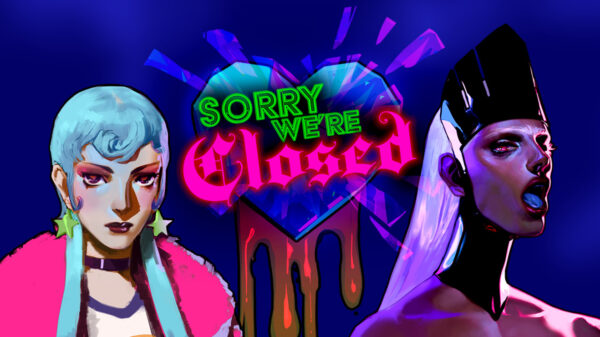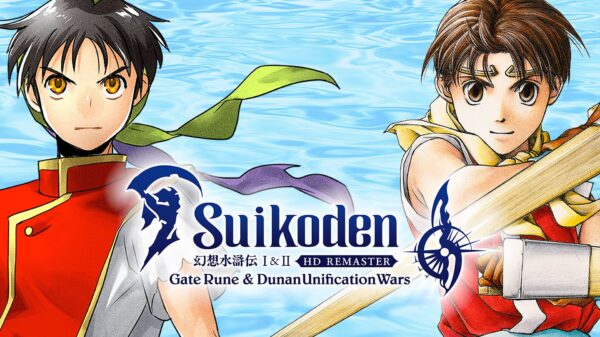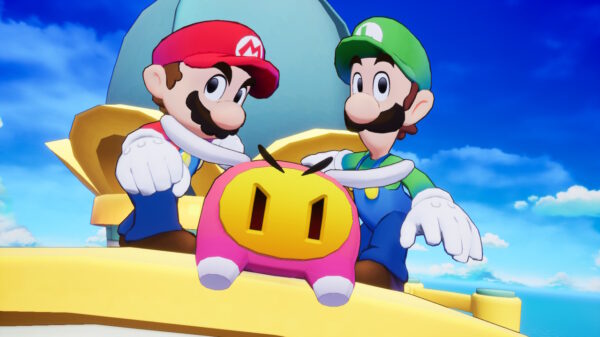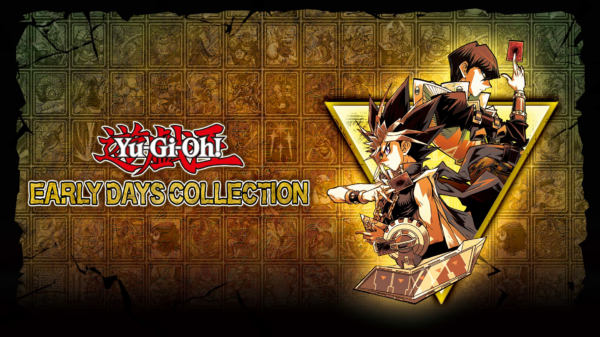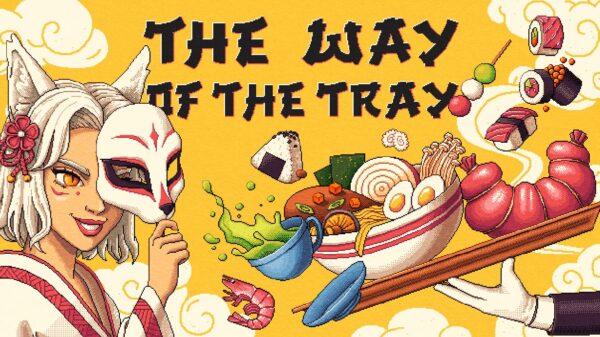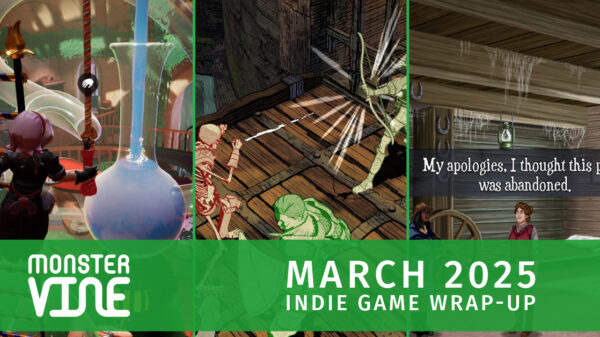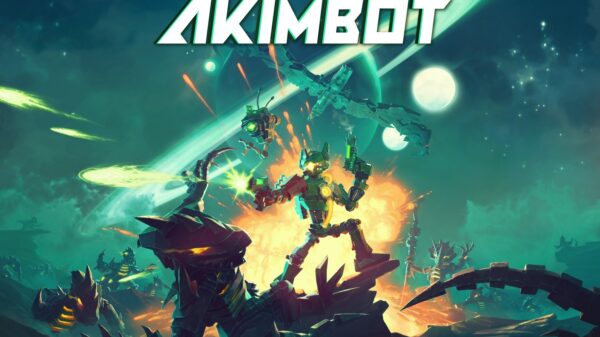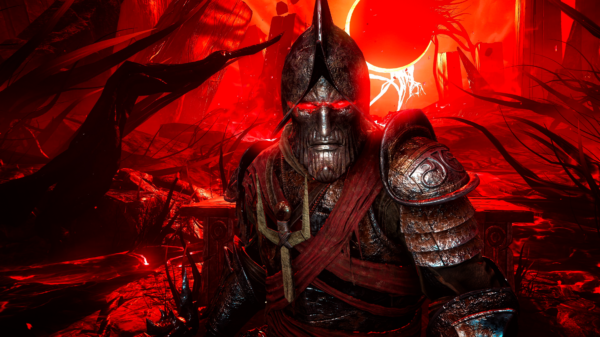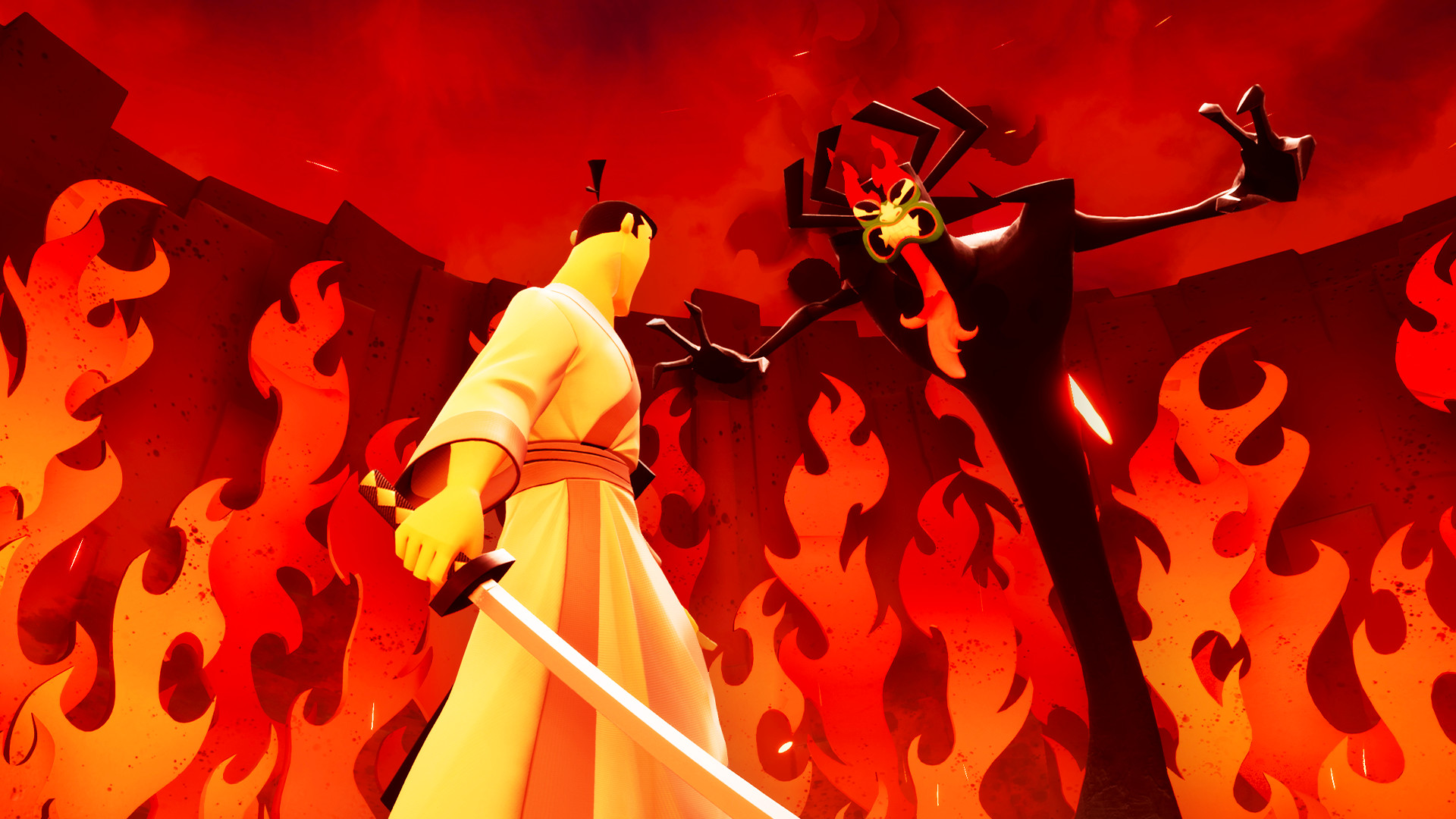I’ve always adhered to the saying that you can never have too much of a good thing, but Samurai Jack: Battle Through Time might just be the game to prove me wrong.
Samurai Jack: Battle Through Time
Developer: Soleil Ltd.
Price: $40
Platform: PC, PS4, Switch, and Xbox One
MonsterVine was supplied with a PC code for review
People might go into Samurai Jack: Battle Through Time expecting either an alternate “what if?” or continuation to the cartoon’s phenomenal series finale, and I’m here to tell you it’s neither. Battle Through Time instead takes place during the finale. The game opens with the scene (and I mean the literal scene, ripped straight from the episode) where Jack and Ashi jump through the portal to go back to the past and as they’re falling through the portal, Aku smacks them apart causing Jack to fall out of the portal. He then “battles through time” until you get to the end where it literally just plays the other half of that original episode scene where they come out the other end of the portal into the past and kill Aku cue credits.
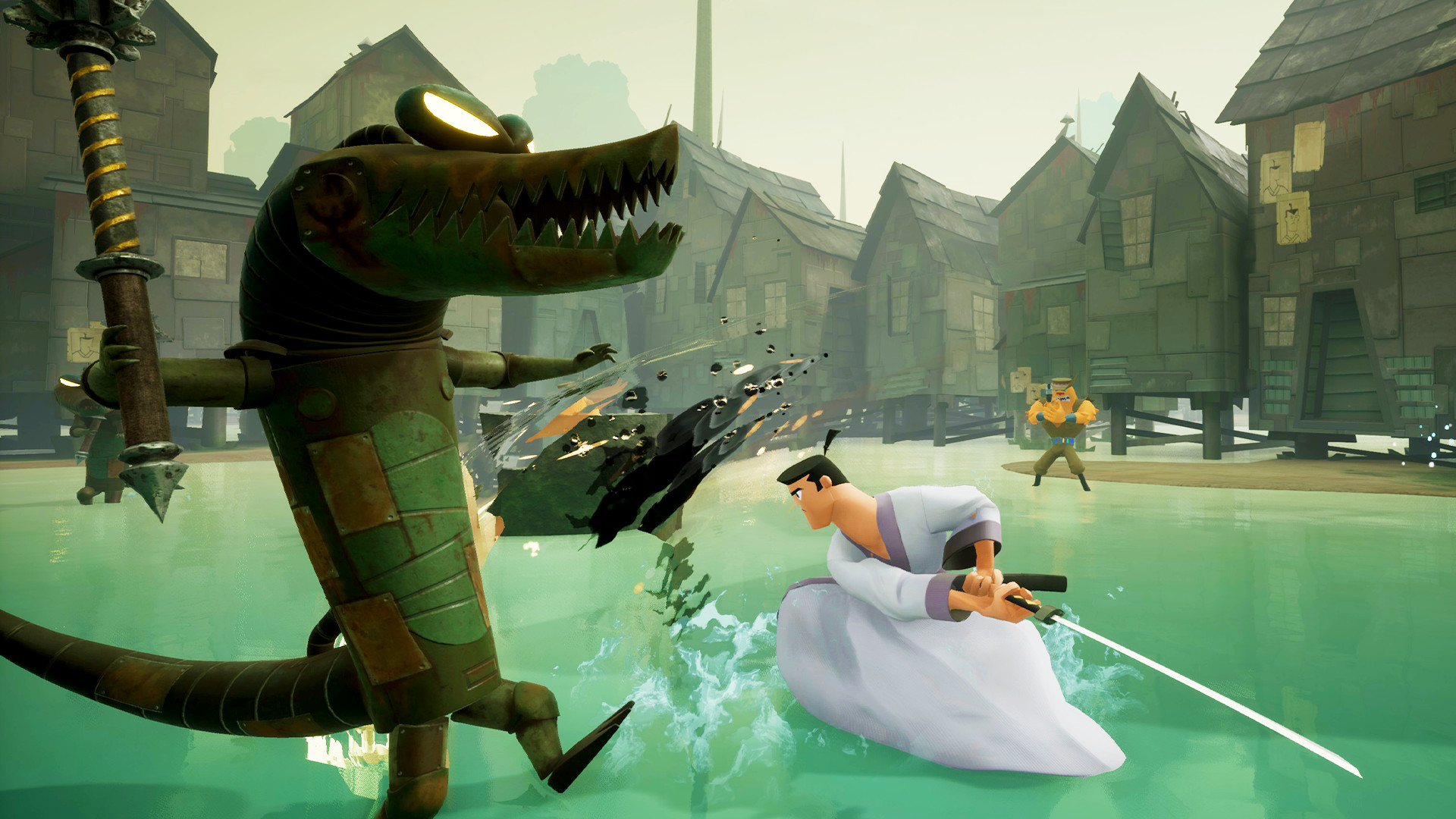
Now I’m not against this sort of “in-between” storytelling technique, but you have to do something with it. In the nine levels, absolutely nothing happens. Jack simply plops into one of the various locations from the show, fights through familiar enemies, and battles a major villain from the series before getting flung off to the next zone via portal. When I say nothing happens, I’m being literal. Each level starts with Jack going “welp, guess I should just walk around and find that portal,” and then it’s absolute silence until you find said portal and he jumps to the next level. The bosses you fight are given special Aku pendants that turn good characters evil, and evil characters… more evil? I’m not sure because it’s never explained what their purpose is and is eventually dropped halfway into the game. They just function as McGuffins for Jack to find since breaking them creates the portal he needs to go to the next area.
In what should be a celebration of the series instead feels like a revolving door of special guests in a sitcom show as familiar faces appear with zero context only to say “hi” and run off. Demongo for example repeatedly shows up as a mini-boss, but he always just appears with no setup or context at all. It isn’t until Scaramouche shows up later in the game that we get an actual semblance of a plot as he and Jack have the game’s first actual conversation that moves what little plot there is forward. The following level (focusing on the battle with the Daughters of Aku in the snow) almost continued that positive momentum until the game decides to ignore the character development Jack made in season 5 as he almost comically kills one of Ashi’s sisters literally seconds after future Ashi pleads with him to show mercy to them. Some might say I’m harping too much on a game that’s based on a show that’s known more for its visuals than its plot, but when you decide not to do something similarly excellent with the visuals as the show did then you better be doing something with the plot or gameplay and they do neither here.
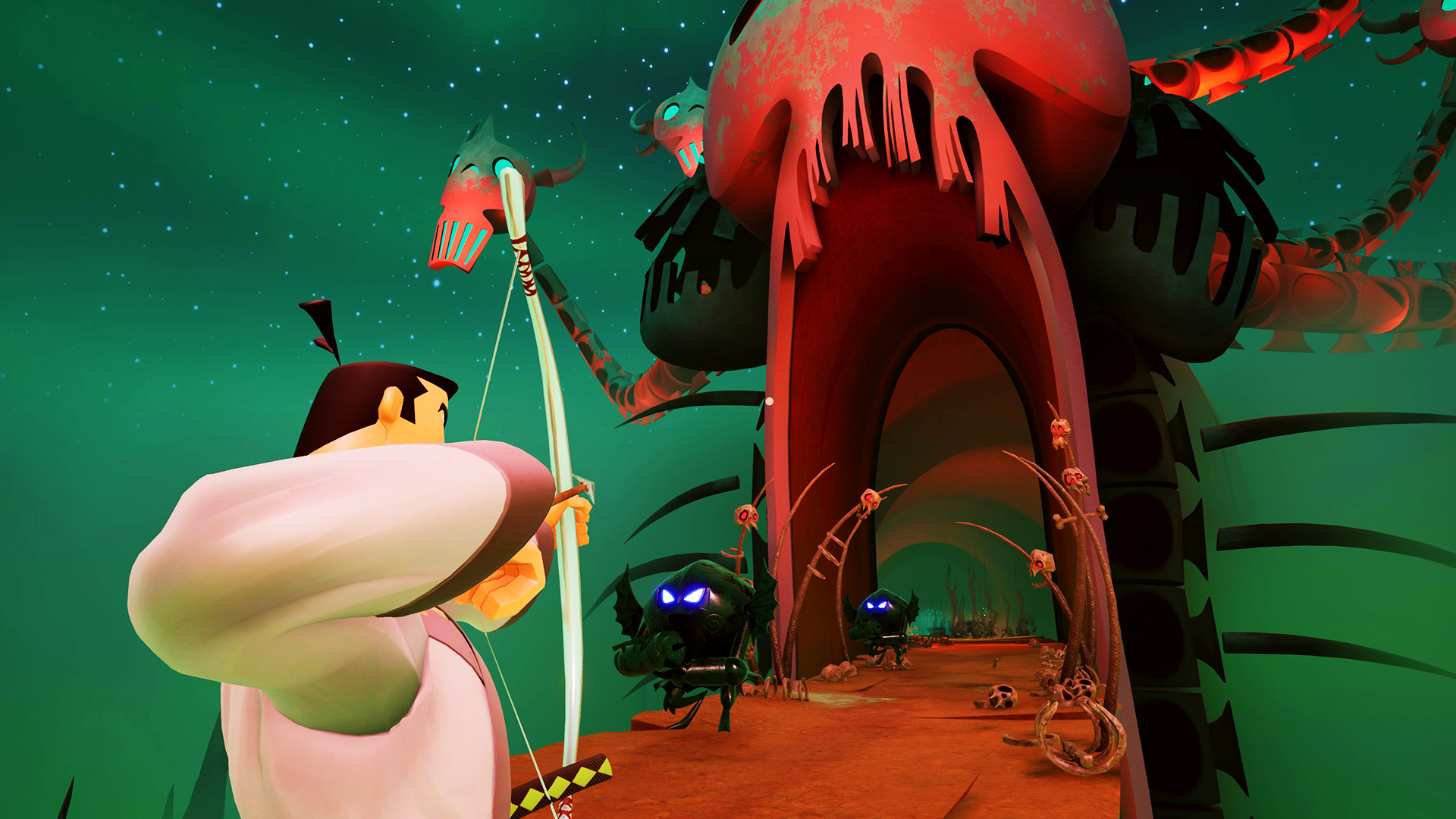
Now before I get into the combat, I’d like to stress that this is the studio that made Naruto to Boruto: Shinobi Strikers which should tell you exactly how this game is going to feel to play. The combat in Battle Through Time is perfectly serviceable; never offensive but doesn’t go out of its way to impress either. You’ve got your basic light/heavy attacks and a few extras like parries or throws that you can toss into the mix as well. I kept flip-flopping with how I felt with the combat because while using Jack’s signature magic sword or just his fist had some good feeling swiftness to them, the other weapons you can use (clubs, spears, & hammers) all felt incredibly stiff and clunky. I will say that the combo inputs don’t always feel super accurate, and many times I found myself accurately hitting the buttons but not getting the appropriate combo; blocking can also feel a bit finicky as it comes slower than you would want it to.
As cookie-cutter as the combat is, there’s a surprising attempt at adding layers to the system. Jack has three incredibly large skill trees that you’ll invest heavily in; these can range from enemies dropping more items to increasing the damage of your thrown weapons. The basic skill point currency (skill fire) you’ll acquire by killing enemies, you’ll also need to use a secondary currency called bushido souls to get some of the more advanced skills. These can be dropped by enemies, but your main source of them is by breaking your weapons. So your secondary weapons (basically anything BUT your sword or fists) have a durability you need to watch for and when they break they’ll drop some souls. The game leverages this as a “will you won’t you” situation by saying how certain weapons are more useful against specific enemy types so you should repair and keep what you need, but I honestly blew through the whole game (which by the way comes in around 6-7 hours) exclusively using Jack’s sword and fists. I’d only pull out a secondary weapon just to break them to get those sweet delicious bushido souls.
Now my issue with this entire system is how padded it feels. You’ll drop thousands of skill points into simply unlocking a single combo move, which feels mildly insulting considering you’re dropping tons of points into unlocking what’s just a basic four-button input move. Secondly, weapons tend to take a bit too long to break which always left me feeling like the game was holding me back from having as many bushido souls (and thus, unlocking skills) as I felt like I should. This also translates to the shopkeeper who you could spend a third currency (gold coins) on to buy upgrades for your weapons that never actually felt like they did anything. My fists at level one felt the exact same as them at level four, despite the fact that the game claims it goes up in power. There’s honestly an overall lack in the power fantasy feeling this sort of game should be feeding you. You rarely feel like a slick samurai badass besides in the few moments where the game tosses a swarm of enemies with heavily reduced health so they die in a hit or two when normally it’s like ten. Those moments are neat, but when they’re over and the same enemies are taking their regular amount of hits to die it kind of deflates the hype of the moment.
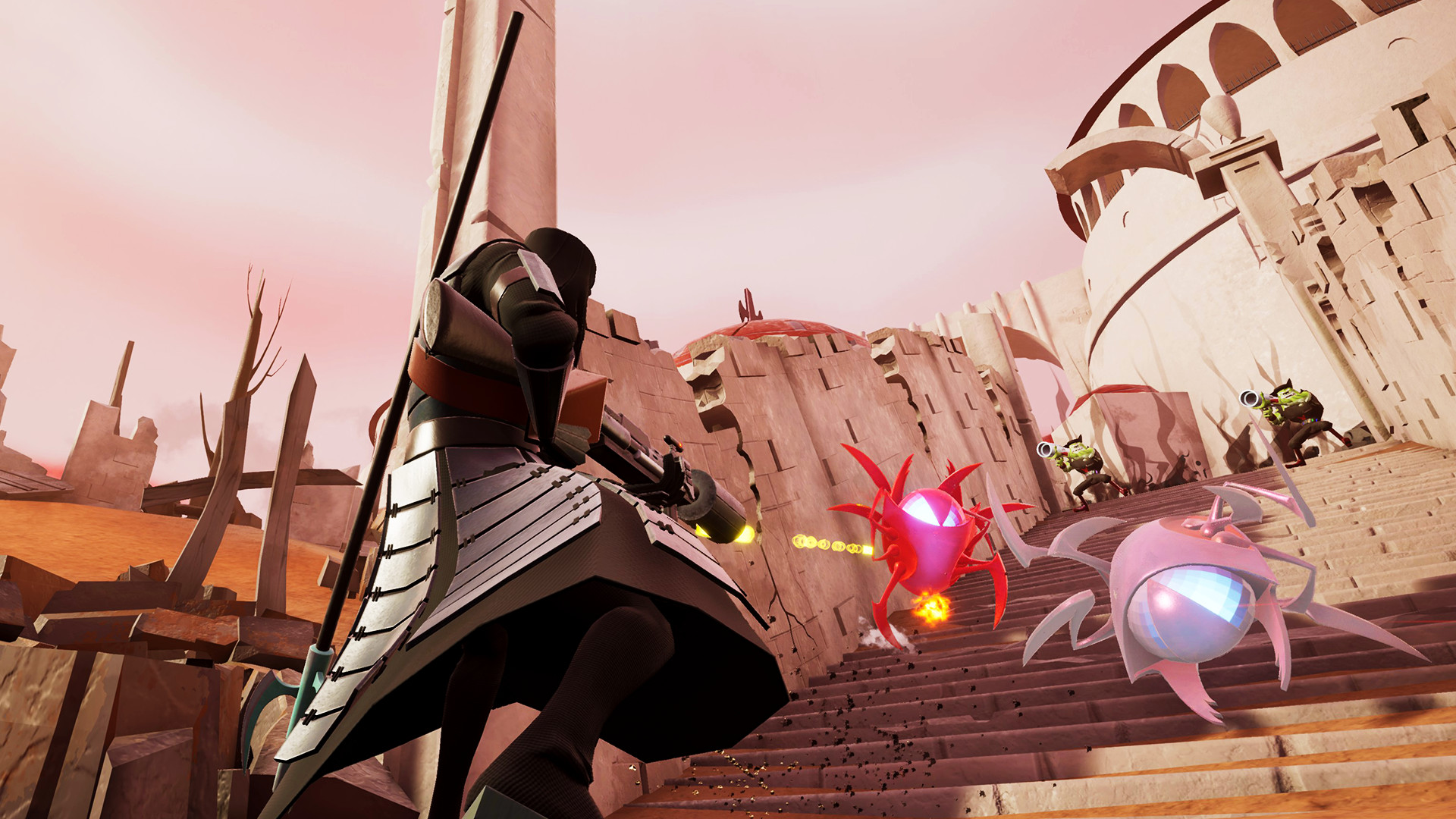
The game itself is paced like your regular action game. You’ll enter a level, blow through arenas filled with enemies, meet a boss at the end, and get your score before moving on to the next stage. I will say, as a big fan of the series it is pretty neat to fight in the locations from the show, I just wish the combat was a bit more engaging. There are challenges to do to earn rewards like skill points, but they all distill down to “Kill this many of this enemy” or “Talk to this NPC ____ time” so you never really have to think too hard about completing them. Again, the biggest fault with the game isn’t that it’s bad because it’s not, it’s just that its potential it’s fully realized which is a shame considering the source material.
 The Final Word
The Final Word
When all is said and done, Samurai Jack: Battle Through Time is perfectly mediocre if a tad disappointing for fans of the series expecting more. But anyone looking for a serviceable action game to turn their brain off to for a few hours might scrounge up some fun.
– MonsterVine Rating: 3 out of 5 – Average



